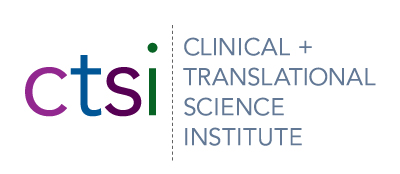Graduate Spotlight
Judith Morgan, PhD, earned her doctorate in Clinical Psychology in 2012 from the University of Delaware. She subsequently completed an internship at the Western Psychiatric Institute and Clinic (WPIC) and a post-doctoral fellowship at the University of Pittsburgh. She is currently an Assistant Professor of Psychiatry in the School of Medicine at Pitt and a recent graduate of the ICRE Career Education and Enhancement for Health Care Research Diversity (CEED) Program. Initially drawn to the CEED program with the hope of gaining more professional development training alongside other minority professionals early in their careers, Dr. Morgan acknowledges that she received many vital experiences through the CEED program. In addition to learning key medical and grant writing skills, which have contributed to her work tremendously, she has also gained experience in how to handle difficult situations and the art of negotiation. The CEED program has allowed her to disseminate her research through practice presentations with CEED leadership and fellows, which has given her the opportunity to receive feedback from others in various disciplines. Monthly small group seminars created an atmosphere to bounce ideas off of others, share common experiences, and see their work through a different lens. Dr. Morgan has been conducting research since her time as an undergraduate student at the University of Alabama, where she was a McNair Research Scholar from 2002 to 2004. Her current research is focused on the interplay of early affective development and familial socialization in children at risk for clinical disorders, specifically the emotional and social development in children who are at risk for depression based on familial history. She hopes to learn how children who are at risk for depression grow emotionally and socially across multiple developmental periods compared to children without the risk factor. Dr. Morgan is currently funded with a career development award entitled "Neural and Social Processes of Positive Affect in Children at Risk for Depression" from the National Institute of Mental Health (NIMH). With this funding, she will evaluate school-aged children who are 6 to 8 years with or without a maternal history of depression and compare the two groups on their neural response to reward and their ability to experience positive affect. As a 2014 recipient of the Klingenstein Third Generation Fellowship from the University of Pittsburgh, Dr. Morgan will expand her research by evaluating children who are transitioning into adolescence. This project will evaluate affective development in adolescents aged 11 to 14 years with a maternal history of depression compared to adolescents without this maternal history. Specifically, this project will investigate parent-child processes and explore whether depressed parents and their offspring show similar neural and hormonal reward responses. Dr. Morgan will also test whether parent and child reward responding will predict increases in adolescent depressive symptoms over a one-year period. In July 2013, Dr. Morgan created the Child Affect Regulation and Expression (CARE) laboratory, which was developed alongside her NIMH career development award and is home to her research projects. The laboratory also serves as a vehicle for Dr. Morgan to engage in one of her greatest joys—mentoring students. She mentors one to three students per semester in her CARE laboratory. This year she will have two returning students, a sophomore and a senior, who are committed to learning the methods of conducting research and understanding important processes in child and adolescent development. In order to give her mentees a well-rounded experience, her students also discuss empirical research articles in journal clubs with her laboratory and with colleagues' laboratories. Dr. Morgan also enjoys mentoring outside of her academic work and has served as a mentor for middle school students in Pittsburgh Public Schools, allowing them to talk to her about their day-to-day struggles. She credits her love for service as a result of the great mentorship she herself has received along her trajectory. Her mentors provided her with structure and guidance and have been instrumental in helping her along her path. When asked what advice she had for incoming CEED trainees, she stated, "Take advantage of all of the opportunities being offered, including mentorship outside of your department. Natalia and Kaleab offer great guidance and hold a lot of wisdom in terms of career development." [Drs. Natalia Morone and Kaleab Abebe are the directors of the CEED program.] For more on Dr. Judith Morgan, visit http://www.psychiatry.pitt.edu/node/8871. |

The Institute for Clinical Research Education serves as the Research Education and Career Development Core of the Clinical and Translational Science Institute (CTSI).
This Web site is maintained by the Center for Research on Health Care (CRHC) Data Center.
Contact the webmaster at dcweb@pitt.edu.

